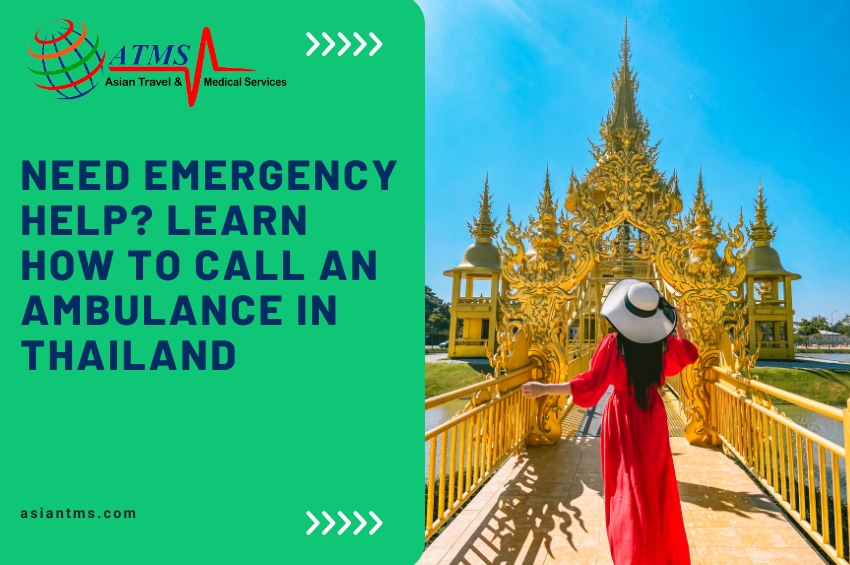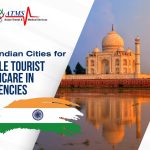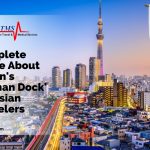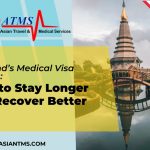
At ATMS (Asian Travel and Medical Services), we’ve backed thousands of tourists, expats, and natives during risky positions. So if you’re ever curious, “How do I call an ambulance in Thailand?”—you’re in the right place.
In this guide, we illustrate everything you need to know about emergency medical help in Thailand. Including numbers to call, what to expect, and how we at ATMS can help make the process smooth and safer for you.
Understanding Ambulance Services in Thailand
Thailand has diversified ambulance providers, and approaches change depending on the region. There are:
- Government emergency aid
- Private hospital ambulances
- Volunteer-run or support-based ambulances
- Medical help agencies like ATMS, offering systematized and multilingual support
Unlike in some nations where skilled personnel are a single crisis number and centrally governed dispatch, Thailand’s ambulance plan can be disintegrated, which can lead to disorientation during emergencies.
That’s why being aware of the right steps and having support like ours at ATMS may be life-saving.
Emergency Numbers You Should Know
Here are the main crisis contact numbers for calling an ambulance in Thailand:
- 1669 – National Emergency Medical Services (EMS)
- 191 – General Police Emergency Number (can assist with medical emergencies)
- 1646 – Bangkok Metropolitan Ambulance Dispatch Center (Bangkok only)
- 1554 – Highway Police (for accidents on highways)
- +66 [ATMS Hotline] – Our 24/7 Medical Assistance Line for fast reaction, translation, and arrangement with wards
Tip: If you don’t speak Thai, the business ATMs’ helpline can ensure active coordination and prevent miscommunication.
What Happens When You Call 1669?
The 1669 crisis number connects you to Thailand’s national EMS network. Here’s what to anticipate:
Step-by-Step Process:
1. Call 1669
The dispatcher will respond in Thai (few have basic English).
2. Give your location
Be as specific as attainable: hotel name, road, landmarks.
3. Describe the danger
Heart pain, bleeding, unconsciousness, etc.
4. Answer the questions
Age, condition of the patient, consciousness, etc.
5. Ambulance booking
From the nearest nursing home or volunteer support.
While 1669 is a free public service, answer times and transport types vary by area, especially in country or extreme-traffic zones.
Public vs. Private Ambulance – What’s the Difference?
Public Ambulance (Free Service):
- Operated by government clinics or foundations
- Available through the 1669 hotline
- No expense for transport, but limited supplies and variable English support
- May be more sluggish in remote districts or all along busy opportunities
Private Ambulance (Paid Service):
- Offered by private hospitals or through organizations like ATMS
- Equipped with progressive life support, oxygen, and monitors
- Staff includes trained medical assistants or nurses
- Faster, more professional reaction—especially for visitors and expats
At ATMS, we plan out fast private ambulance coordination, accompanied English-speaking medics, and emergency room networks that are ready to receive victims. Contact our Medical Assistance provider Thailand for more information.
What if you don’t speak Thai?
Language is one of the most generous obstructions during crises in Thailand.
Many public dispatchers and ambulance crews do not speak fluent English, which can delay help or lead to misunderstandings about the condition and part.
This is where we become involved.
How ATMS Supports You:
- Multilingual call center (English, Thai, and more)
- We talk directly to the ambulance dispatcher on your behalf
- We guide the tool to your location utilizing GPS and local knowledge
- We inform the receiving clinic in advance
- If needed, we supply on-site healing escorts or teleconsultation
How to Share Your Location Accurately
When calling for help, your exact position matters. Many delays happen because the ambulance can’t find the patient.
Here’s how to specify the correct details:
- Use your lodging or building name
- Mention milestones (temples, malls, BTS stations)
- Drop a Google Maps attachment and send by way of text by chance
- Share your room number or floor if inside a construction zone
- Provide clear route names and intersections
Bonus Tip: If you’re registered with our ATMS – Medical Services provider in Thailand, we keep your travel or dwelling address on file for a faster answer.
When You Call an Ambulance?
- Chest pain or heart attack syndromes
- Unconsciousness or fainting
- Severe damage or bleeding
- Breathing troubles
- Seizures
- Suspected stroke
- Severe allergic responses
How to Prepare for Booking an Ambulance?
In a rush, it’s easy to forget necessities. Here’s what to bring:
- Passport or ID
- Travel security documents
- Cash or credit card for private wards
- Medication list or prescriptions
- Mobile phone (accompanying charger or capacity bank)
- Emergency contact info
If you contact us first, we will help you make these details and even follow the ambulance if needed.
How ATMS Makes Emergency Medical Care Easier in Thailand
Whether you’re a tourist visiting Bangkok, an expat in Chiang Mai, or a retiree in Phuket, ATMS is your trusted healing services associate in Thailand.
Here’s what we provide:
- 24/7 Emergency Medical Hotline
- Fast Ambulance Coordination (public and private)
- Hospital Admission and Transfers
- Translation & Interpretation Support
- Telemedicine Consultations
Our crew includes knowledgeable medical specialists, bilingual case managers, and logistics specialists who work together to catch you help—fast and stress-free.
Let Us Be There When You Need It Most
Calling an ambulance in an offshore country can be daunting, but with accompanying ATMS by your side, you’re never alone in danger. Our priority is your security, comfort, and mental freedom.
Whether it’s helping you call the right number, relating with clinics, or translating during dangerous moments, we’re forever ready to assist. Contact ATMS – Asian Travel and Medical Services. Stay prepared. Let our medical repatriation services provider in Thailand handle the crises, so you can focus on improvement.



